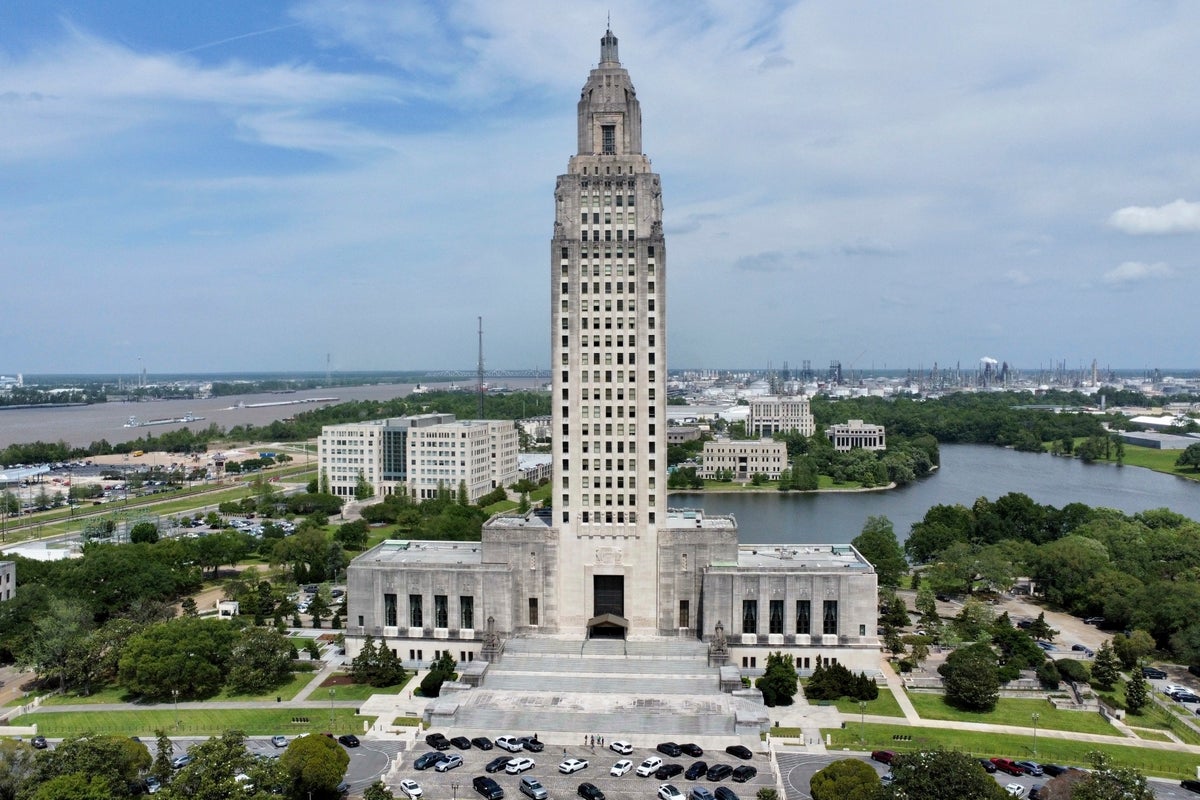
As several conservative states adopt legislation that prohibits school employees from teaching or discussing sexual orientation and gender identity in the classroom, Louisiana advanced its own “Don’t Say Gay” bill Wednesday.
The anti-LGBTQ+ measure was narrowly approved by a Republican-controlled House committee and heads to the full House, where an emotionally charged debate over the culture war measure is all but guaranteed. It comes as hundreds of bills have been filed in statehouses taking aim at nearly every facet of transgender existence — from health care to athletics to bathroom access — and the LGBTQ+ community.
“This bill would erase someone like me,” Maxwell Cohen, 27, who identified as transgender, told Louisiana lawmakers Wednesday. “This piece of legislation tells queer kids that they must hide, that they don’t matter and that they are wrong. But we know that’s far from the truth. We must protect queer kids and acknowledge them for who they are, because they exist, they are special, and they matter.”
Last year, Florida became the first state to pass what critics call the “Don't Say Gay” law. Since then, copycat bills have been filed by conservative lawmakers across the country. The legislation signed by Florida Gov. Ron DeSantis last year barred instruction on sexual orientation and gender identity in kindergarten through the third grade. The state's policy has since been expanded to include all grades, unless required by existing state standards or as part of reproductive health instruction that students can choose not to take.
Republicans argue that parents should broach these subjects with children on their own. Democrats say the law demonizes and isolates LGBTQ+ people by excluding them from classroom lessons. They also say it creates a chilling effect on teachers who fear being penalized for mentioning anything related to homosexuality.
As of March, there were at least 30 proposals similar to Florida’s law, filed in 16 states. So far, three other states — Alabama, Arkansas and Kentucky — have enacted similar “Don’t Say Gay” laws.
The bill that advanced 7-5 from a Louisiana House committee on Wednesday would ban K-12 public school staff from teaching or discussing gender identity and sexual orientation, including during any extracurricular activity. Republican state Rep. Dodie Horton, who authored the legislation, said the bill has “nothing to do with someone’s personal lifestyle,” but rather was created to “protect all children.”
Opponents who spoke against the bill for nearly three hours — at times with tears in their eyes and a couple yelling at lawmakers — said the bill would do the opposite, harming students. Many cited that LGBTQ+ students already are at high risk of bullying and depression, and that the bill could send vulnerable members of the queer community spiraling further into depression and anxiety.
Among the opponents was Elliot Wade, a member of Louisiana Trans Advocates. He discussed the importance of being able to confide in and talk to teachers about gender identity and sexual orientation. In high school, when Wade came out as transgender, the first people he told were teachers.
“Coming out was not an option for me, it was that or death. I don’t mean that as a hyperbole, I mean that literally,” Wade told lawmakers. “If I didn’t come out and live as my truth then I was going to end my life ... I wouldn’t be here talking to you today — I just wouldn’t be here. There are a lot of people who are not here, even without a bill like this passing.”
Louisiana’s bill would also require teachers to use the pronouns that align with a student’s birth sex. A similar bill, which would also require school employees to use pronouns and the name of a student that correlate with their birth certificate, also advanced out of the committee Wednesday. Both pieces of legislation have an exception if the student’s parent provides written permission to do otherwise.
Republican state Rep. Raymond Crews, who authored the bill, said the legislation was created to “solidify and identify parent’s rights to raise children,” to decrease the “distraction” that he says pronouns are causing in classrooms and to protect teachers and school board members from “this type of politicization.”
The pronoun legislation in Louisiana is among a wave of interchangeable bills being considered in statehouses across the nation, which would formally allow or require schools to deadname transgender students or could out them to their parents without consent. Deadnaming refers to using the name a transgender person used prior to transitioning.







